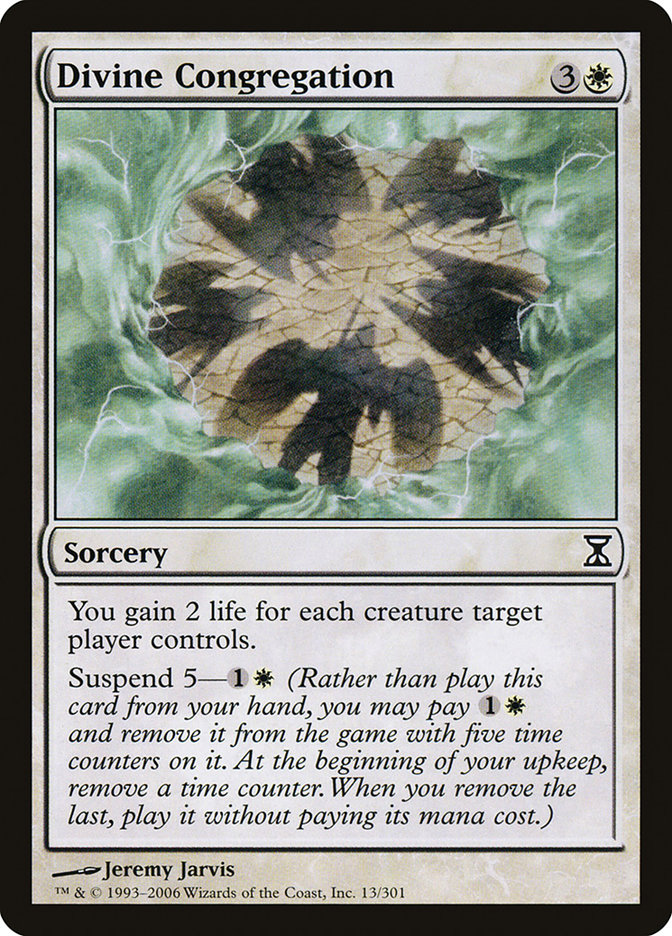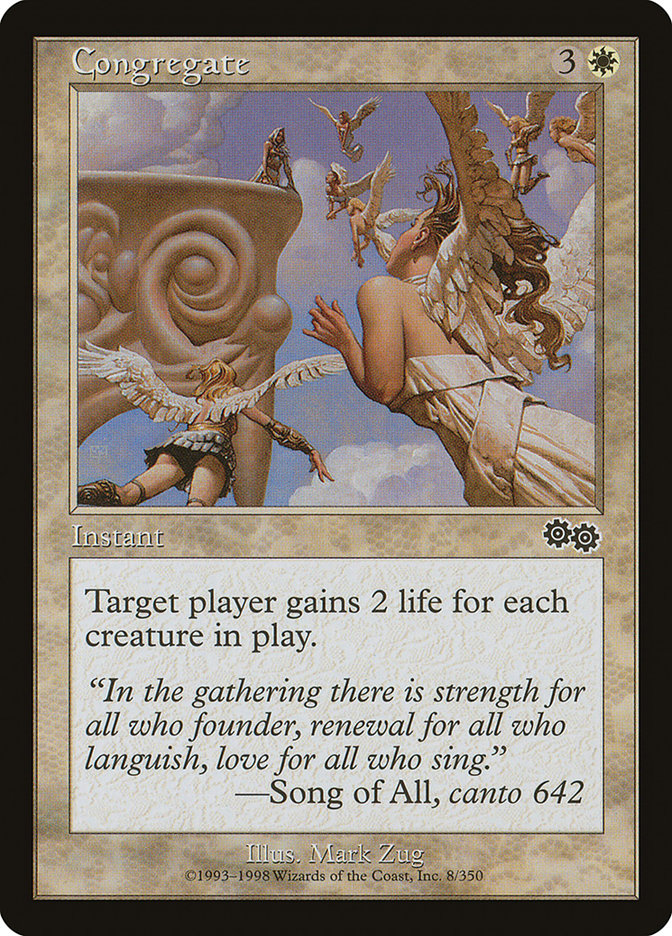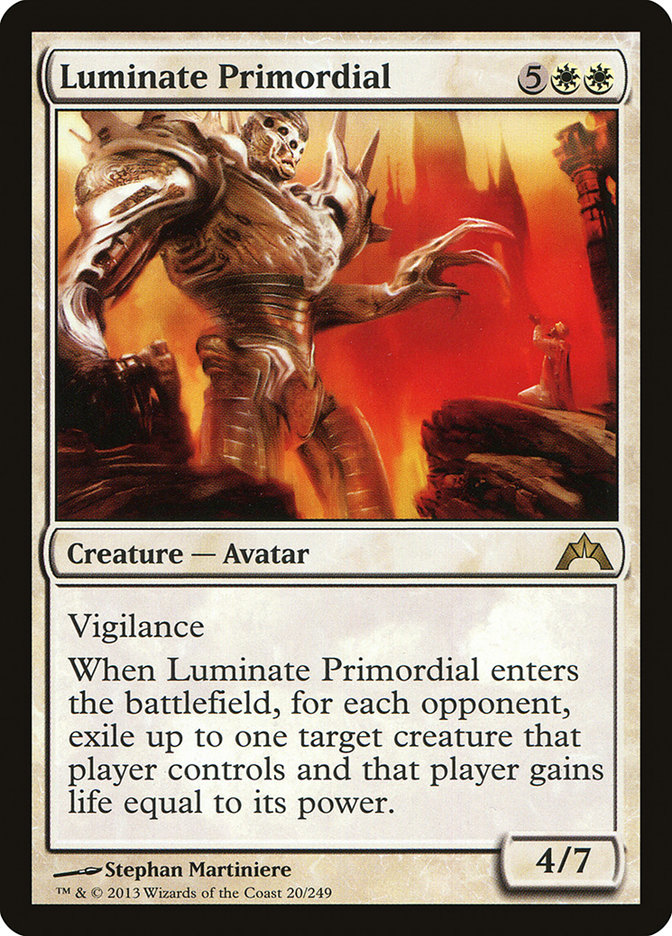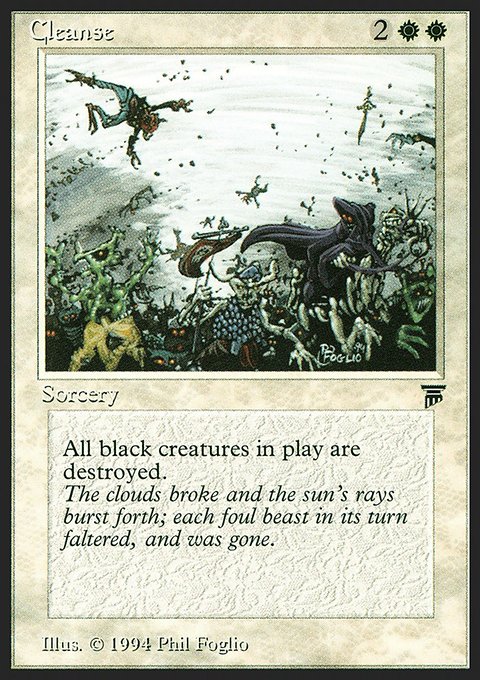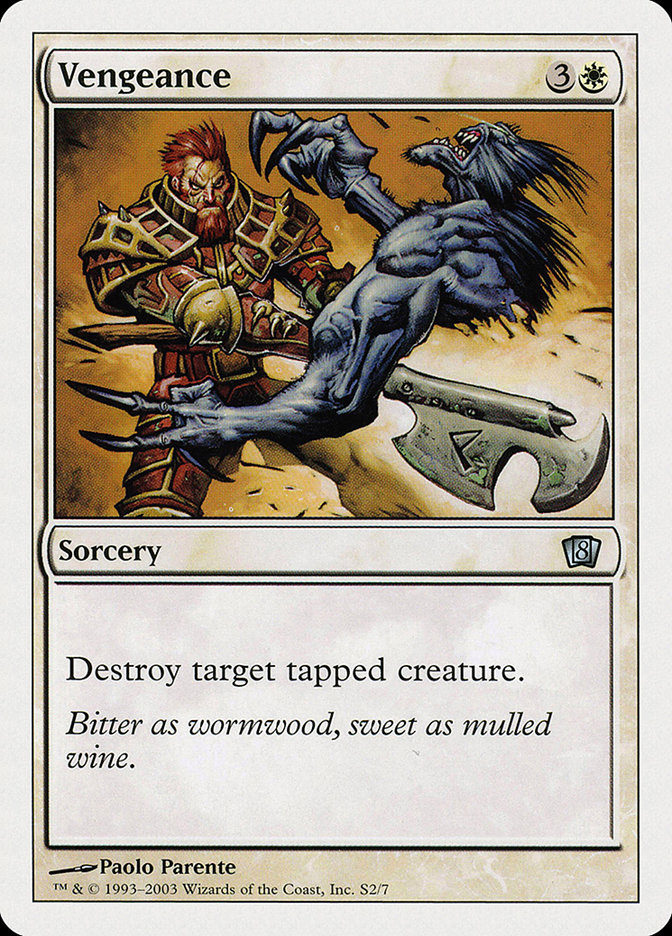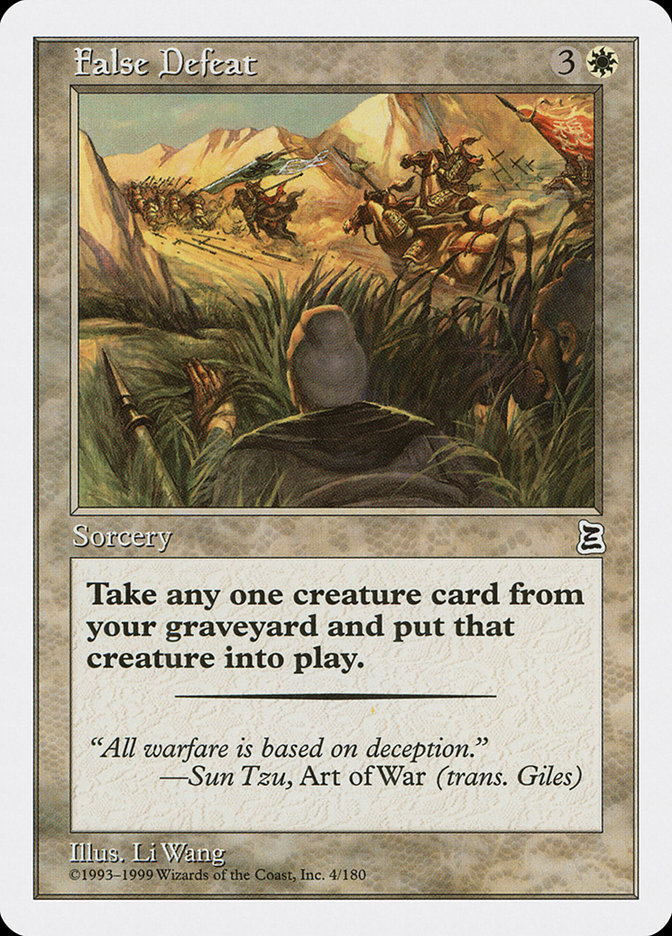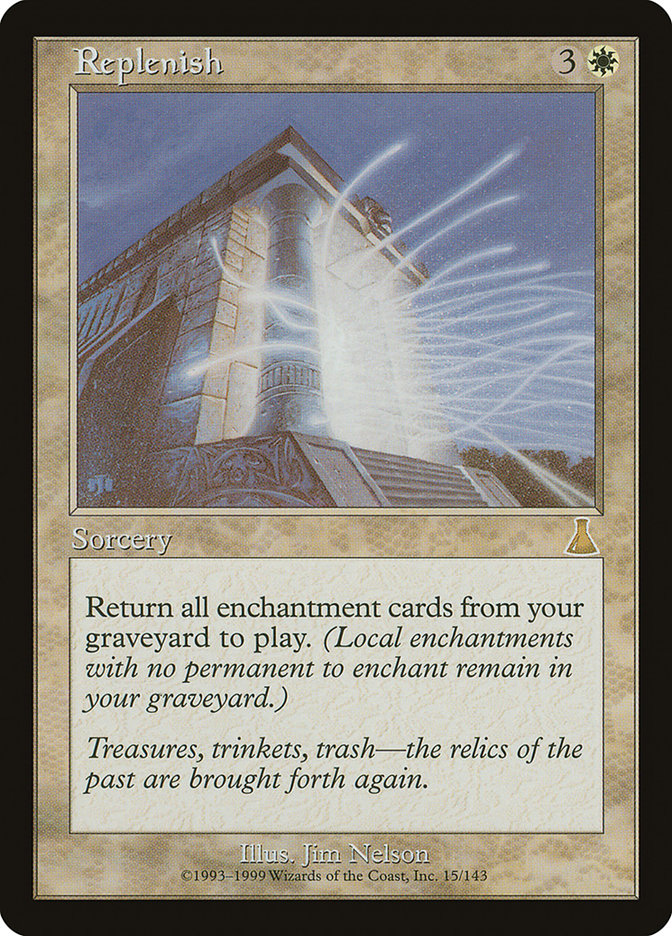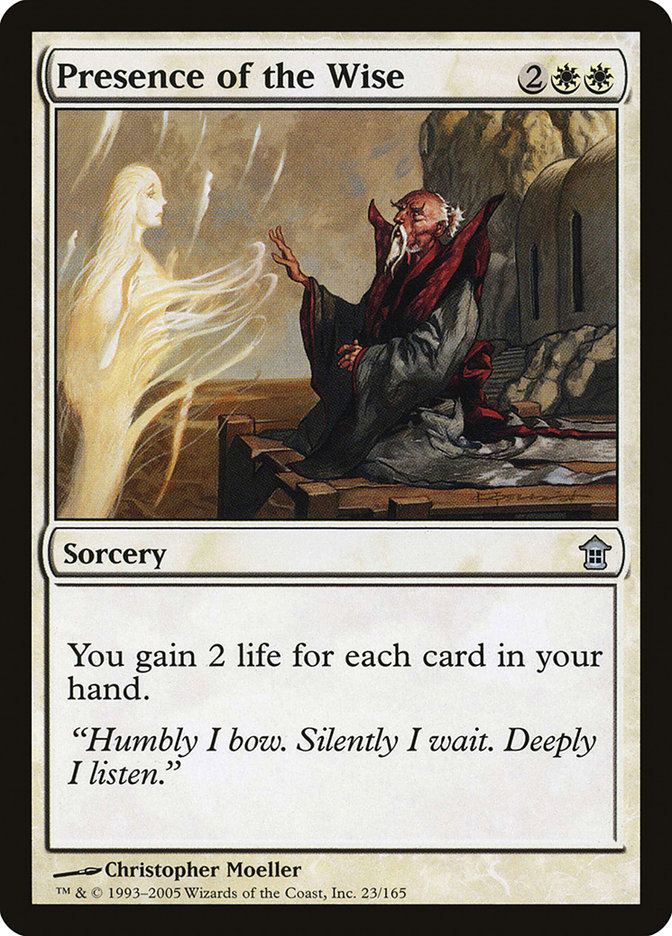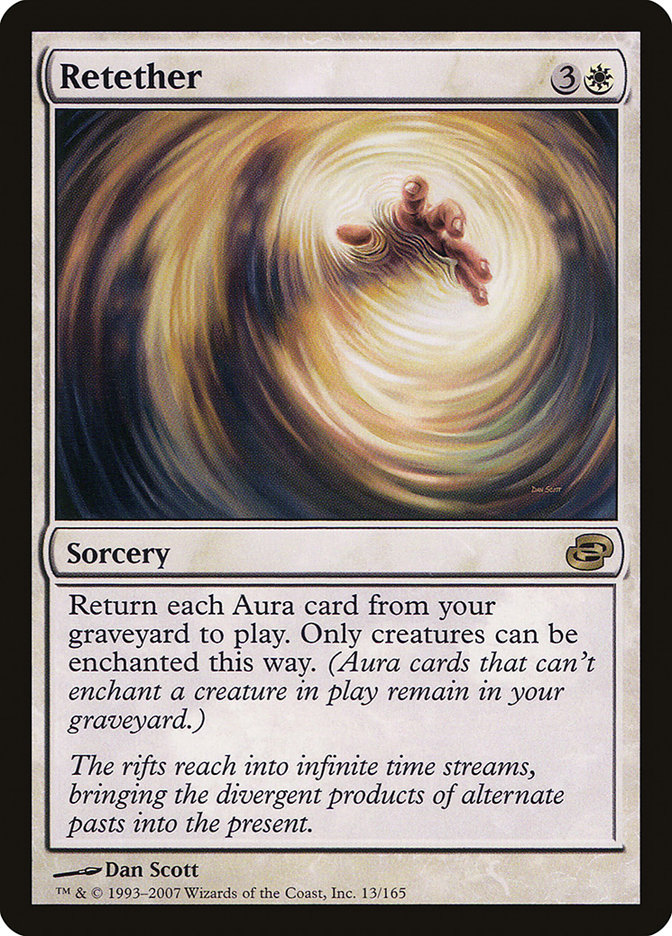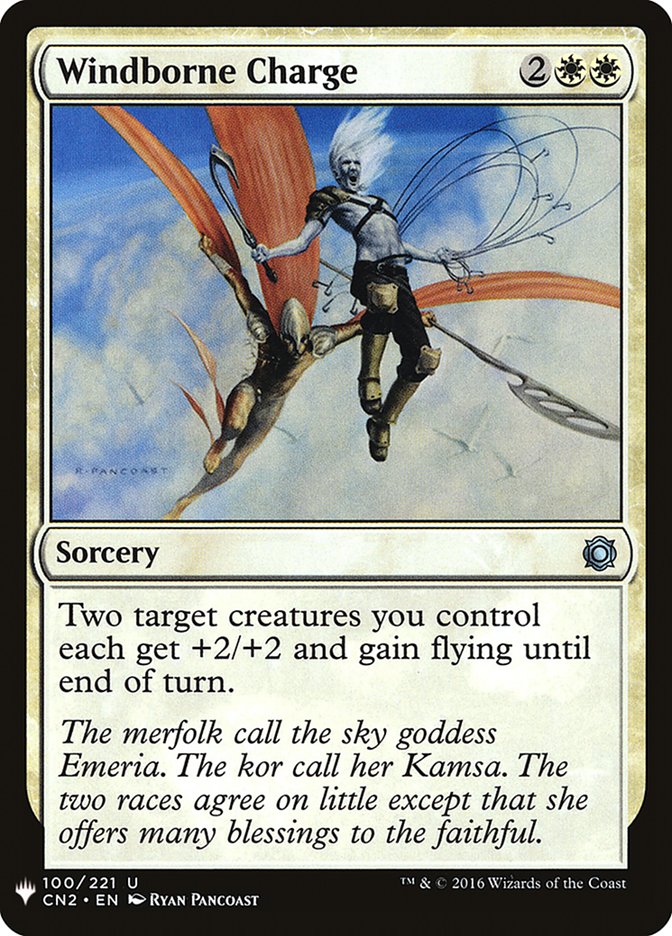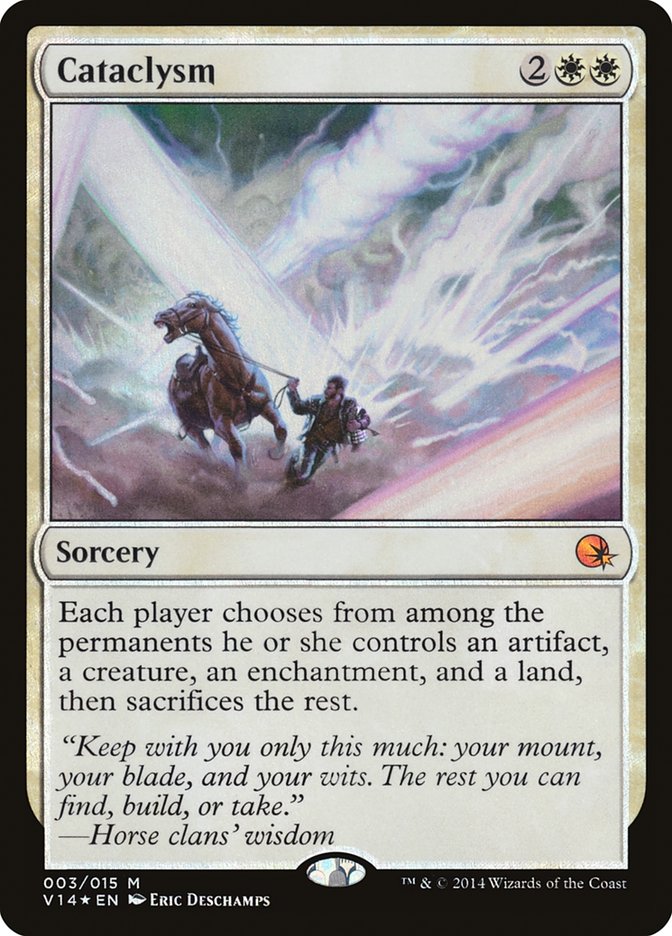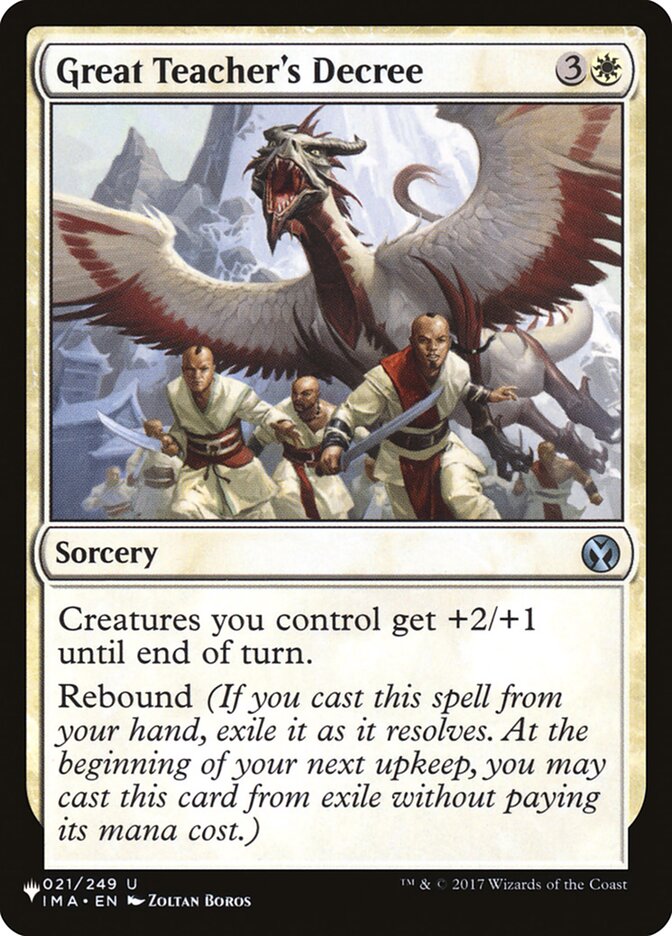Divine Congregation MTG Card
| Mana cost | |
| Converted mana cost | 4 |
| Rarity | Common |
| Type | Sorcery |
| Abilities | Suspend |
| Released | 2006-10-06 |
| Set symbol | |
| Set name | Time Spiral |
| Set code | TSP |
| Number | 13 |
| Frame | 2003 |
| Layout | Normal |
| Border | Black |
| Illustred by | Jeremy Jarvis |
Text of card
You gain 2 life for each creature target player controls. Suspend 5— (Rather than play this card from your hand, you may pay and remove it from the game with five time counters on it. At the beginning of your upkeep, remove a time counter. When you remove the last, play it without paying its mana cost.)
Cards like Divine Congregation
Divine Congregation stands as a unique life-gaining spell in the realm of MTG. It bears comparison to cards like Congregate, which similarly focuses on lifesaving by tallying creatures on the battlefield. Congregate sums up the total creatures present and grants two life for each, yet Divine Congregation has its distinction – it tailors the life gained to the player with the highest life total.
Another parallel can be drawn with Beacon of Immortality, as both excel in life-boosting strategies. While Divine Congregation conditions its life gain on the board state, Beacon of Immortality instantly doubles a player’s life total, offering a strategic edge in tightly contested matches. Then we encounter Luminate Primordial, which also links life gain to creatures but mixes in removal mechanics, an aspect Divine Congregation forgoes for its straightforward life gain focus.
Considering the nuanced dynamics of life gain in MTG, Divine Congregation emerges as a spell with tactical advantages in multiplayer formats, where the variable life totals introduce an intriguing layer of strategy and interaction among players.
Cards similar to Divine Congregation by color, type and mana cost
Card Pros
Card Advantage: Divine Congregation provides a notable lifegain effect that is substantial in multiplayer games. In scenarios where multiple players have established sizeable creature boards, the life points gained can translate into a sizable card equivalent, providing an edge when it comes to sustaining your presence on the battlefield.
Resource Acceleration: Although Divine Congregation itself may not directly generate additional mana or tokens, the life gained can indirectly serve as a resource, empowering synergies with other cards that thrive on high life totals to quicken the pace of your overall strategy.
Instant Speed: The capability to play Divine Congregation at instant speed provides a tactical advantage. It can be deployed in response to combat or at the end of an opponent’s turn, potentially swaying the tide of the game unexpectedly and allowing you to retain mana for reactive plays or bluffs during critical phases.
Card Cons
Discard Requirement: Divine Congregation requires you to discard two cards as part of its casting cost. This can put you at a card disadvantage, especially if you’re already behind or if those cards are crucial to your strategy.
Specific Mana Cost: With a mana cost that includes white, Divine Congregation might not slot easily into multi-colored decks that don’t heavily feature white mana. This restricts it primarily to mono-white or white-centric builds.
Comparatively High Mana Cost: Costing a total of six mana, three of which are white, Divine Congregation can be challenging to play early in the game. Many players might prefer cards with lower mana costs that offer a more immediate impact on the board state.
Reasons to Include in Your Collection
Versatility: Divine Congregation can be a dynamic addition to decks that play around life totals. Its ability to scale life gain with the number of creatures you control can seamlessly slot into wide-ranging strategies from token-focused decks to creature-heavy aggro builds.
Combo Potential: This card harbors immense synergy with mechanics that capitalize on life gain, such as triggering lifelink benefits or empowering creatures with “+1/+1 for each life gained” effects. It enables potent combinations that can turn the tide of battle in your favor.
Meta-Relevance: Given that many popular deck archetypes in the meta can deal with single threats easily, Divine Congregation bypasses this by diffusing its impact across multiple creatures. In a landscape where board presence and life totals are crucial, having an ace like this ensures resilience against sweepers and direct damage strategies.
How to beat
Divine Congregation, a powerful defensive card in Magic the Gathering, can be a roadblock for many aggressive strategies. The card’s ability to provide a significant life boost based on the number of creatures can turn the tide of the battle in your opponent’s favor. To effectively tackle this, consider adapting your play style to manage the number of creatures your opponent has on the board. Using removal spells efficiently to keep their creature count low can blunt the impact of Divine Congregation.
Another strategy is to deploy counterspells or hand disruption tactics to prevent Divine Congregation from being cast in the first place. Cards like Thoughtseize or Negate can be crucial in maintaining control over the game. Focusing on these approaches reduces the chance of Divine Congregation making a substantial difference in your opponent’s life total, thus keeping you in a winning position. Remember that timing and resource management are key; apply pressure but keep resources in hand to counteract your opponent’s lifeline plays.
All in all, the strategy to beat Divine Congregation lies in pre-emptive action, precise timing, and controlled aggression. Keeping these strategies in mind can help you maintain the upper hand against decks that aim to capitalize on life-gaining cards.
Where to buy
If you're looking to purchase Divine Congregation MTG card by a specific set like Time Spiral, there are several reliable options to consider. One of the primary sources is your local game store, where you can often find booster packs, individual cards, and preconstructed decks from current and some past sets. They often offer the added benefit of a community where you can trade with other players.
For a broader inventory, particularly of older sets, online marketplaces like TCGPlayer, Card Kingdom and Card Market offer extensive selections and allow you to search for cards from specific sets. Larger e-commerce platforms like eBay and Amazon also have listings from various sellers, which can be a good place to look for sealed product and rare finds.
Additionally, Magic’s official site often has a store locator and retailer lists for finding Wizards of the Coast licensed products. Remember to check for authenticity and the condition of the cards when purchasing, especially from individual sellers on larger marketplaces.
Below is a list of some store websites where you can buy the Divine Congregation and other MTG cards:
 BUY NOW
BUY NOW BurnMana is an official partner of TCGPlayer
- eBay
- Card Kingdom
- Card Market
- Star City Games
- CoolStuffInc
- MTG Mint Card
- Hareruya
- Troll and Toad
- ABU Games
- Card Hoarder Magic Online
- MTGO Traders Magic Online
See MTG Products
Legalities
Magic the Gathering formats where Divine Congregation has restrictions
| Format | Legality |
|---|---|
| Commander | Legal |
| Legacy | Legal |
| Paupercommander | Legal |
| Modern | Legal |
| Oathbreaker | Legal |
| Pauper | Legal |
| Vintage | Legal |
| Duel | Legal |
| Predh | Legal |
Rules and information
The reference guide for Magic: The Gathering Divine Congregation card rulings provides official rulings, any errata issued, as well as a record of all the functional modifications that have occurred.
| Date | Text |
|---|---|
| 2021-06-18 | As the second triggered ability resolves, you must cast the card if able. You must do so even if it requires targets and the only legal targets are ones that you really don’t want to target. Timing permissions based on the card’s type are ignored. |
| 2021-06-18 | Cards exiled with suspend are exiled face up. |
| 2021-06-18 | Exiling a card with suspend isn’t casting that card. This action doesn’t use the stack and can’t be responded to. |
| 2021-06-18 | If an effect refers to a “suspended card,” that means a card that (1) has suspend, (2) is in exile, and (3) has one or more time counters on it. |
| 2021-06-18 | If the card has in its mana cost, you must choose 0 as the value of X when casting it without paying its mana cost. |
| 2021-06-18 | If the first triggered ability of suspend (the one that removes time counters) is countered, no time counter is removed. The ability will trigger again at the beginning of the card’s owner’s next upkeep. |
| 2021-06-18 | If the second triggered ability is countered, the card can’t be cast. It remains exiled with no time counters on it, and it’s no longer suspended. |
| 2021-06-18 | If the spell requires any targets, those targets are chosen when the spell is finally cast, not when it’s exiled. |
| 2021-06-18 | If you can’t cast the card, perhaps because there are no legal targets available, it remains exiled with no time counters on it, and it’s no longer suspended. |
| 2021-06-18 | If you cast a card “without paying its mana cost,” such as with suspend, you can’t choose to cast it for any alternative costs. You can, however, pay additional costs. If the card has any mandatory additional costs, you must pay those if you want to cast the card. |
| 2021-06-18 | Suspend is a keyword that represents three abilities. The first is a static ability that allows you to exile the card from your hand with the specified number of time counters (the number before the dash) on it by paying its suspend cost (listed after the dash). The second is a triggered ability that removes a time counter from the suspended card at the beginning of each of your upkeeps. The third is a triggered ability that causes you to cast the card when the last time counter is removed. If you cast a creature spell this way, it gains haste until you lose control of that creature (or, in rare cases, you lose control of the creature spell while it’s on the stack). |
| 2021-06-18 | The mana value of a spell cast without paying its mana cost is determined by its mana cost, even though that cost wasn’t paid. |
| 2021-06-18 | When the last time counter is removed, the second triggered ability of suspend (the one that lets you cast the card) triggers. It doesn’t matter why the last time counter was removed or what effect removed it. |
| 2021-06-18 | You are never forced to activate mana abilities to pay costs, so if there is a mandatory additional mana cost (such as from Thalia, Guardian of Thraben), you can decline to activate mana abilities to pay for it and hence fail to cast the suspended card, leaving it in exile. |
| 2021-06-18 | You can exile a card in your hand using suspend any time you could cast that card. Consider its card type, any effects that modify when you could cast it (such as flash) and any other effects that stop you from casting it (such as from Meddling Mage’s ability) to determine if and when you can do this. Whether you could actually complete all steps in casting the card is irrelevant. For example, you can exile a card with suspend that has no mana cost or that requires a target even if no legal targets are available at that time. |
